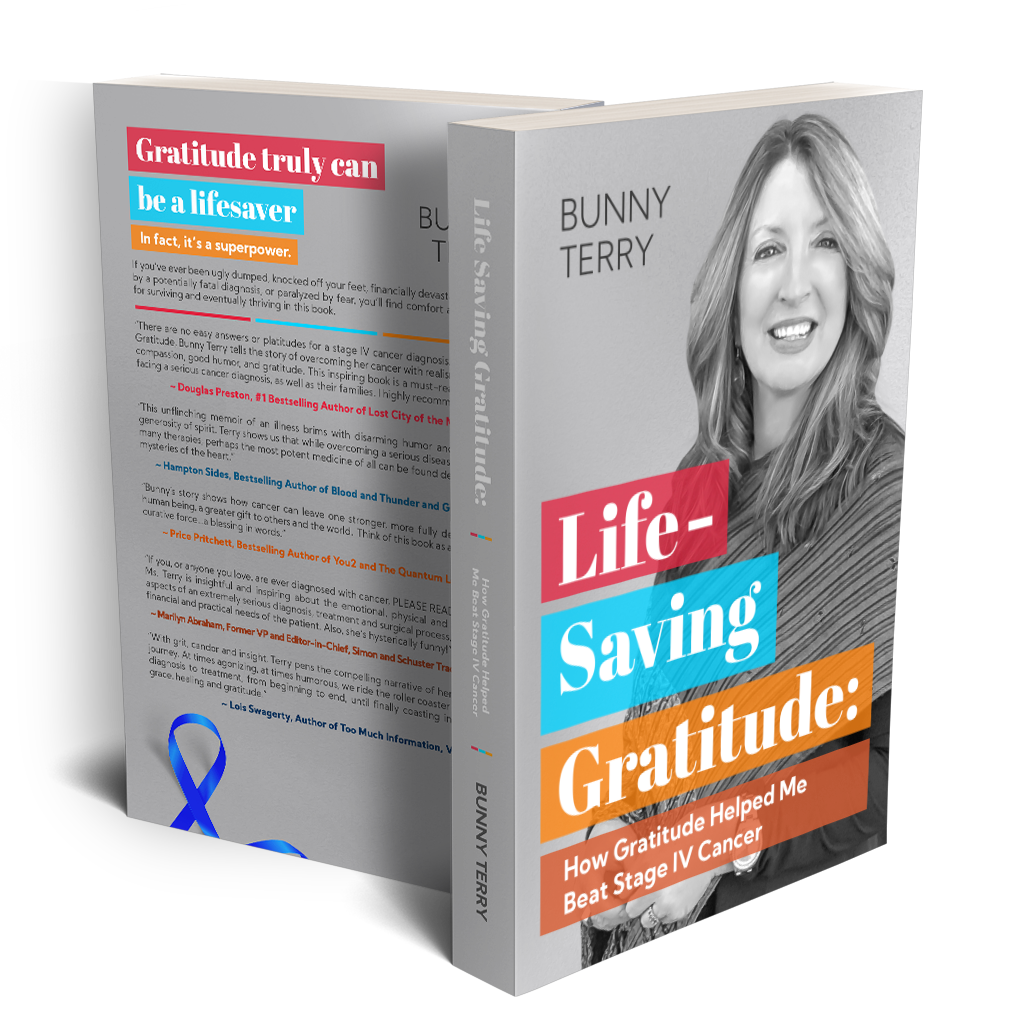This is the first in a series of posts about what not to say to a cancer patient.
I’m asked all the time by friends who have a newly diagnosed family member or friend how they can best help. Just last week someone in my life got a hard diagnosis and her daughter called me as a resource.
I’m not an expert about a lot, but I am an expert about the difference between the things that helped me during my cancer journey and the things that didn’t. In fact, I devoted an entire chapter in my memoir, Lifesaving Gratitude, to someone sending me a link that said I had a 2% chance of survival.
I don’t know about you, but hearing that I had a 98% chance of death from my diagnosis wasn’t particularly helpful.
Today’s a good day to share this tip with you. Every single day, someone is getting a cancer diagnosis. Someone is sitting in a hospital bed or on the edge of an examining table, and their oncologist is lifting his or her eyes from their chart and saying, “The tests indicate that. . .”
That person has just received some of the worst, if not the worst, news of their life. For me, it was definitely the worst. I hadn’t previously lost a parent or a child. No one in my family had ever suffered an illness like this.
Knowing that someone somewhere is hearing those words today always gives my goosebumps. I want to reach out to them wherever they are and hold their hand.
That’s what most newly diagnosed cancer patients need, although some need time to process the information. I reached out to my close friend last week and simply said in a text, “I am here to talk when you are ready. I love you.”
She texted back, “As soon as I can talk without crying, I’ll give you a call.”
Be the safe person someone wants to call. Be the nonjudgmental friend that someone can lean on. In fact (and this is the hard for me), sometimes you just need to be silent and present. Anne Lamott said in one of her books, “Sometime you just have to let time and silence work their magic.”
So in this, my first blog post of many about what NOT to say to a cancer patient, here’s my advice:
Don’t say anything, other than that you’re there and waiting to hear from them, to listen, to love them and fold them up in your caring and kindness. While you’re waiting, send them something wonderful.
One of the best gifts I received right after my diagnosis was a luxurious faux fur blanket from Judy Robertson, a woman from my hometown who at the time was not a particularly close friend, but a woman I’d known for years. We didn’t socialize, and I probably hadn’t seen her for three or four years. But somehow she knew exactly what I needed at the moment. The gift showed up in a big box with a beautiful card that simply said, “I’m thinking of you. Let me know if you’d like to talk.”
Thinking about that gift still makes me cry with gratitude. Judy turned out to be one of my most stalwart supporters. When she can to Santa Fe, she’d call and she and her sister would take me to breakfast or lunch. She was one of the first readers of my manuscript. Somehow I knew that she was available without any judgment or expectation of anything from me. She asked nothing of me, which was good since my resources were so depleted at the time.
Because I had my initial treatments in December and throughout the spring, the blanket went with me from the red couch where I lay exhausted after chemo to my high ceilinged bedroom in my Santa Fe adobe, where the only heat source was from a wood-burning stove in the next room. I even carried it to chemo a couple times despite its size.
It was a comfort to me.
And as it turns out, what cancer patients need rather than your words or your links to scary websites is comfort and care. A lot of it.
Today my advice is this: Don’t say a lot in the beginning. Keep showing up with kindness. Drop off a container of soup (in fact, leave it on the front porch). Email an Uber gift card because cancer patients forget to cook – they’re too freaked out and probably no longer hungry. Send a fuzzy blanket or robe. Let them know they have your best wishes and love.
But don’t send any links to alternative treatment centers that say they have a slim chance of survival. That what NOT to say to a cancer patient.
Thanks for checking in. We’re going to talk about this a lot. I’d love to hear your thoughts on the subject.


 Bunny Terry is a native New Mexican who grew up on a farm in northeastern New Mexico. Her first writing job was typing stories on index cards on her family’s Underwood, stories that were uncannily like the ones she read over and over in O Ye’ Jigs and Julips, her favorite childhood book. No one thought to save those index cards for posterity, although there is the theory sarcastically circulated by her siblings that they will certainly be worth millions someday.
Bunny Terry is a native New Mexican who grew up on a farm in northeastern New Mexico. Her first writing job was typing stories on index cards on her family’s Underwood, stories that were uncannily like the ones she read over and over in O Ye’ Jigs and Julips, her favorite childhood book. No one thought to save those index cards for posterity, although there is the theory sarcastically circulated by her siblings that they will certainly be worth millions someday. 
Bunny
I agree. Going they breast cancer snd melanoma I feel what you are saying
My best experience after my bilateral breast mastectomy was when a nurse came into my hospital room and said “I’m handing over my shoes to you as a survivor myself “. When you walk in these shoes you are walking with a survivor…I ask only one thing, please pass these shoes on to another breast cancer woman…
I will never forget her snd I did pass the shoes on…that was 35 years ago!! God bless Laverne!!
❤️?
I love that nurse story. Little did she know how she was touching you and giving you power. And I know that you share my passion – giving that sort of power to people every day so that the fear they have doesn’t outweigh the support we can give them! Love you, Phyllis!
Bunny
I remember your ‘f-them’ comment when I told you about a friend who had said I probably wouldn’t have cancer if I didn’t eat sugar!
I’d say it all over again. Until someone has a cancer diagnosis, they have no idea how those remarks hurt. As IF we caused our own cancer. . .
Love to you, my dear friend!
Bunny
Thank you for sharing this. I was diagnosed with triple negative metastatic breast cancer stage 4 and am in treatment. Many friends have been completely absent and I sometimes feel very alone and isolated.
Oh Lorrie, I’m so sorry about your diagnosis, and equally sorry that your friends seem to have abandoned you. I had friends who were frightened about how to deal with me. I’d love to have you join us at my Lifesaving Gratitude Facebook group where we can lift you up and share our gratitude with you on a daily basis. Here’s the link: https://www.facebook.com/groups/3651042128273300/ And please feel free to email me at bunnyterrycoaching@gmail.com if you just need to bounce your fears off a very willing listening ear. My heart goes out to you.
Bunny
Oh my goodness, where to start in this comment box.
I was diagnosed with breast cancer in 2019, I totally remember sitting on the doctors table, numb, confused, and scared.
I love your comments on what not to say.
Peace and love to you Bunny.
Annie J.
Annie – Numb, confused and scared is a great way to put it. I’d love to hear things that were said to you that only escalate your pain. I’ve decided that’s a book that needs to be written as well. What do you think?
Love and Peace to you as well. I appreciate you, always!
Bunny, it’s just over 21 years since I was diagnosed with breast cancer and I can still remember the painful comments and the helpful ones, the clueless and the caring. People telling me about someone whose hair came back a different color and texture after chemo and speculating on what would happen to me. Friends telling me horror stories about someone they knew. Friends telling me I’d be fine when I had no idea about my prognosis. In the end, my best advice to people was – you be you and I’ll be me because I’m still the same person.
Those are such wise words. .”You be you and I’ll be me because I’m still the same person.” I think people are so frightened by cancer in general that they stop treating you like the person you’ve always been. In the book, I talk about friends stopped thinking I could listen to their mundane problems, that my story was so much worse than theirs that I didn’t want to hear about them. It was like I suddenly became a bad listener because I had cancer. But you and I know we were the same person as before, just with this crappy disease wreaking a bit of havoc in our life. Thanks for your comment and congratulations on whipping your diagnosis in the Ass!!
Thanks Bunny. You too!